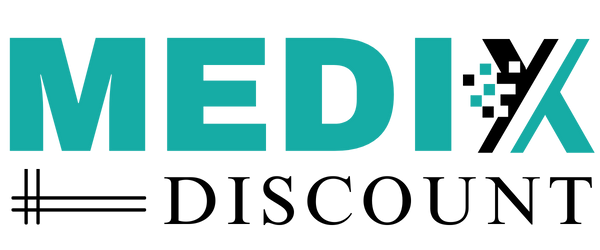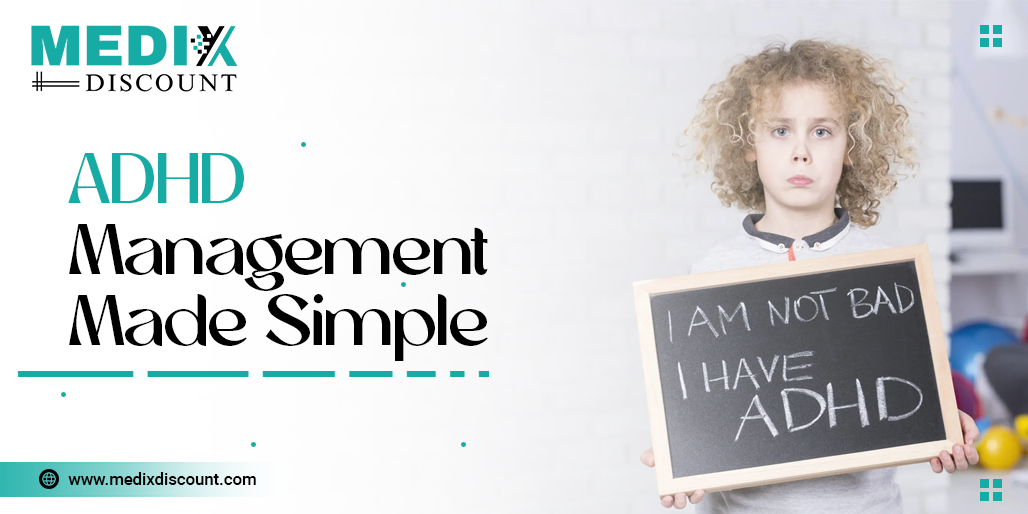Attention Deficit Hyperactivity Disorder (ADHD management) affects millions of people worldwide, impacting their ability to focus, stay organized, and manage tasks efficiently. Whether you’re newly diagnosed or have been managing ADHD for years, finding practical and effective approaches for everyday life can make a significant difference. Here, we explore straightforward strategies to help streamline ADHD management and improve overall quality of life.
Understanding ADHD Management
Symptoms of inattention, hyperactivity, and impulsivity characterize ADHD. These symptoms can manifest differently in individuals, making a one-size-fits-all approach to management impractical. Recognizing the unique ways ADHD affects you or your loved one is crucial for developing personalized strategies.
Establish a Routine
A structured routine can help mitigate the chaos often associated with ADHD management. Consistency provides a predictable framework, which can reduce the cognitive load of figuring out what comes next. Here’s how to build an effective routine:
- Create a Daily Schedule: Use planners, apps, or simple charts to outline daily activities. Include specific times for waking up, meals, work or school tasks, and relaxation.
- Set Regular Sleep Patterns: Aim for consistent bedtimes and wake times to improve sleep quality, which can enhance focus and mood.
- Prioritize Tasks: Break tasks into smaller, manageable chunks and tackle them one at a time. This prevents overwhelm and helps maintain focus.
Use Tools and Technology
Modern technology offers a wealth of tools to help with organization and time management. Here are some effective options:
- Task Management Apps: Apps like Trello can help you keep track of tasks, deadlines, and projects. They often come with features like reminders and priority settings.
- Calendar Apps: Digital calendars (Google Calendar, Microsoft Outlook) can be synchronized across devices and send reminders for appointments and deadlines.
- Timers and Alarms: Using timers for work sessions and breaks (e.g., the Pomodoro Technique) can help maintain focus and manage time effectively.
Organize Your Space
A cluttered environment can exacerbate ADHD symptoms by creating visual and mental distractions. Keep your space organized to help improve focus:
- Declutter Regularly: Set aside time each week to tidy up your workspace and living areas. Keep only essential items within reach.
- Designate Spaces: Assign specific areas for different activities (e.g., a dedicated workspace for work tasks, and a quiet area for reading). This helps create a mental association between space and activity.
- Use Organizational Tools: Invest in storage solutions like bins, shelves, and drawer organizers to keep items sorted and accessible.
Implement Effective Time Management
Time management can be challenging for individuals with ADHD, but certain techniques can make it easier:
- Time Blocking: Allocate specific blocks of time for different tasks or activities. This helps create a sense of structure and can prevent procrastination.
- Set Time Limits: Use timers to limit the amount of time spent on a task. This encourages focused work periods and can make daunting tasks seem more manageable.
- Avoid Multitasking: Focus on one task at a time to improve efficiency and reduce mistakes. Multitasking can lead to decreased productivity and increased stress.
Practice Self-Care
ADHD management is effectively involves taking care of your physical and emotional well-being. Incorporate self-care practices into your routine:
- Exercise Regularly: Physical activity can help improve concentration and mood. Aim for at least 30 minutes of moderate exercise most days of the week.
- Eat a Balanced Diet: Proper nutrition supports brain function and energy levels. Include a variety of fruits, vegetables, whole grains, and lean proteins in your diet.
- Mindfulness and Relaxation: Practice like meditating, deep breathing, and yoga can effectively reduce stress and enhance emotional regulation.
Seek Professional Help
Professional guidance can be invaluable in ADHD management. Consider these options:
- Therapy: Cognitive Behavioral Therapy (CBT) and other therapeutic approaches can help address behavioral challenges and develop coping strategies.
- Medication: For some individuals, medication may be an effective part of treatment. Consult with a healthcare provider to discuss potential benefits and side effects.
- Coaching: ADHD coaches specialize in helping individuals develop organizational skills, set goals, and build effective routines.
Communicate and Collaborate
Building strong support systems can enhance ADHD management. Don’t hesitate to seek support from others:
- Family and Friends: Openly discuss your needs and challenges with those close to you. Their understanding and support can make a significant difference.
- Workplace or School: Communicate with employers or educators about your needs. They may be able to offer accommodations or adjustments to help you succeed.
Develop Coping Strategies
Learn to manage the emotional and psychological aspects of ADHD:
- Positive Self-Talk: Challenge negative thoughts and replace them with affirmations and constructive self-talk. Focus on your strengths and achievements.
- Stress Management: Identify your stressors and create strategies to manage them. Techniques like time management, relaxation exercises, and setting realistic goals can be effective.
Set Realistic Goals
Setting and achieving goals can be particularly challenging but also rewarding. Use these tips to set and pursue realistic goals:
- Break Goals into Smaller Steps: Divide larger goals into manageable tasks and focus on completing them one at a time.
- Track Progress: Regularly review your progress and celebrate small successes. This helps maintain motivation and provides a sense of accomplishment.
- Adjust as Needed: Be adaptable and open to modifying your goals and strategies needed. It’s perfectly fine to update your plans to fit what works best for you.
Embrace Flexibility and Patience
Managing ADHD is an ongoing process that requires flexibility and patience. Be prepared for setbacks and adjust your strategies as needed:
- Adapt and Adjust: Recognize that strategy may need tweaking or replacement. Continuously evaluate what works best and be open to change.
- Be Patient: Progress may be gradual. Acknowledge and celebrate small victories and maintain a positive outlook as you work towards your goals.
Conclusion
ADHD management doesn’t have to be overwhelming. By implementing these practical strategies, you can create a more organized, focused, and balanced life. Remember, finding what works best for you may take time, but with patience and persistence, you can develop effective approaches to manage ADHD successfully. Whether you’re routines, using technology, or seeking professional help, it’s crucial to tailor your strategies to your specific needs and circumstances.

